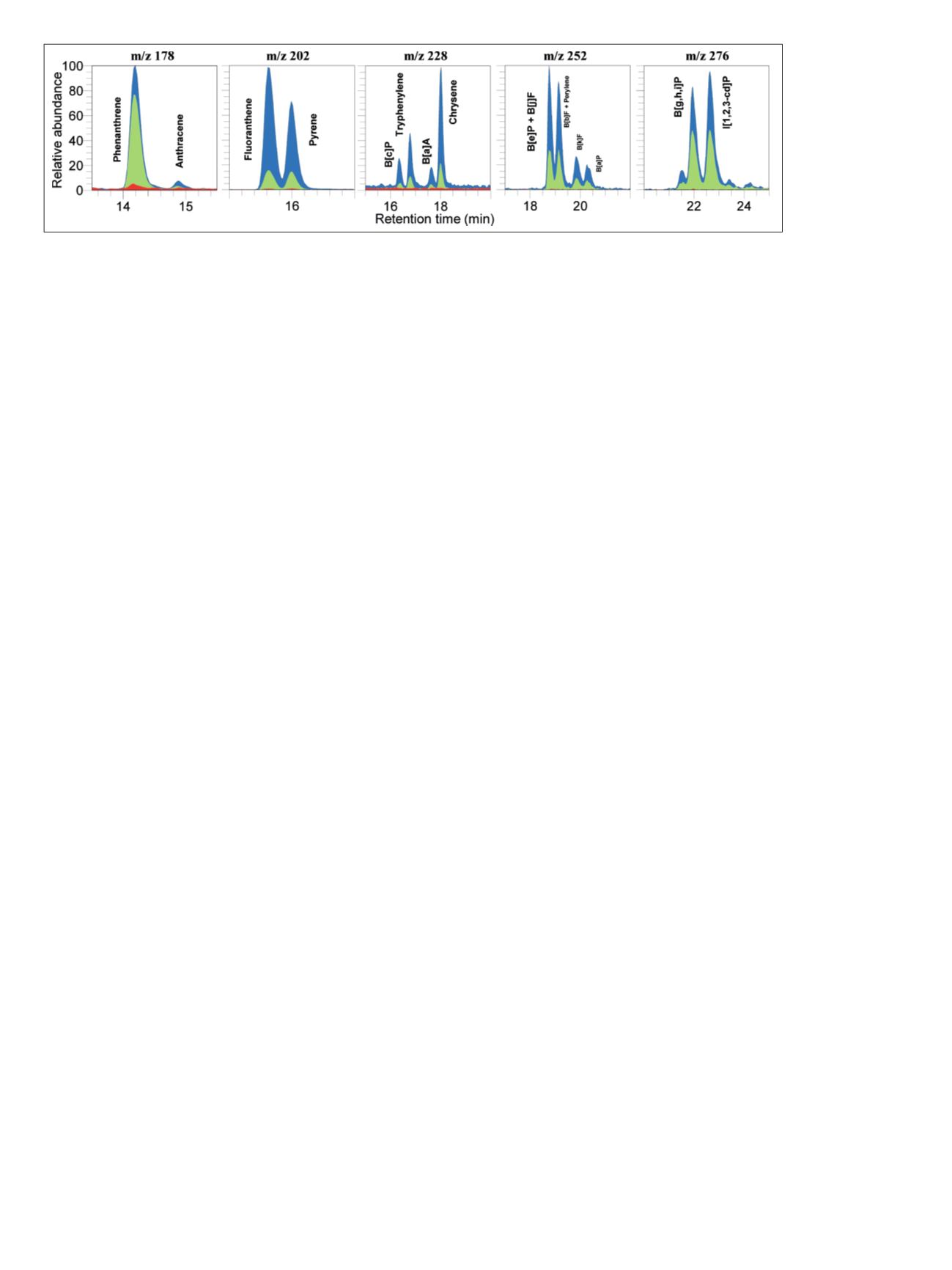

9
Although not enough data is available to explain the
non-occurrence of PAHs in runoff from the campus
parking lots, the residential parking lot had a much
slower drainage capability, and thus, the sample was
collected under moderate flooding conditions. The lower
drainage rate may have enhanced the possibility of
detections as PAH-containing suspended particles could
not be washed out by the rain as fast as in the campus
parking lots. It is also possible that the nature of the
coatings is different, as it has been shown that asphalt-
based coatings contain many fewer PAHs than coal-based
coatings.
25
Samples of reclaimed water used for irrigation at FIU
Biscayne Bay campus were collected in two different dates
and analyzed in order to assess the performance of the
developed methodology to detect PAHs discharged with
WWTP effluents. Alkylnaphthalenes were detected in one
on the samples (Table 4), but concentrations were lower
than the reporting limit. Good recoveries were obtained in
the fortified matrix experiment for reclaimed water,
suggesting that method sensitivity rather than a severe
matrix effect prevented positive quantification in these
samples. Excellent recoveries were also obtained in
fortified matrix experiments with the other two types of
environmental waters tested with this method, which may
suggest that the use of a wide range of molecular sizes of
isotopically labeled PAHs normalizes analyte behavior
during the automated preconcentration and analysis,
keeping matrix effects under control in spite of the lack of
any other sample preparation steps such as filtration. In
addition, method reproducibility was also good upon
analysis of duplicates of PAH-containing seawater and
runoff samples.
Figure 3. Chromatograms obtained upon analysis of a rainwater runoff sample from a residential parking lot and its comparison with
reference rainwater. (Blue trace: main (quantitative) SRM transition in runoff sample; green trace: secondary (confirmation) SRM
transition in runoff sample; red trace: main SRM transition from injection of reference rainwater)



















